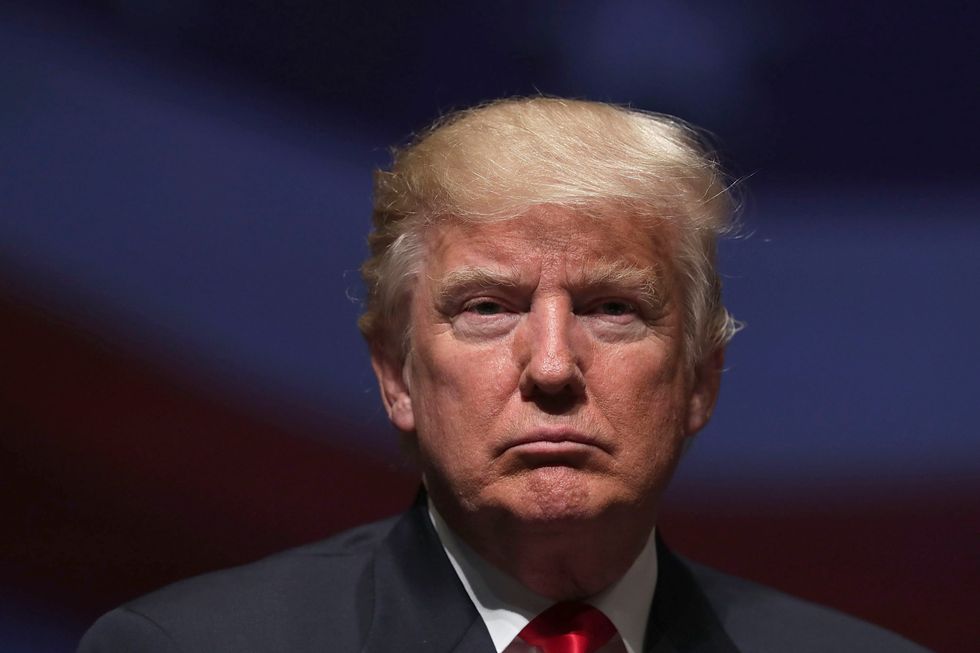Moths are attracted to light. Sharks are attracted to blood. Politicians are attracted to power.
Arguably the most encouraging promise that Donald Trump made in the latter days of his campaign was his goal of “draining the swamp.” Beyond the catchy political PR that the slogan created, it gave hope to those of us who worry that career politicians are the last people to reduce their own power in Washington D.C. Fresh blood, whether through Trump’s swamp-draining, Ted Cruz’s term limit amendment, or both, is necessary for the country to start the process of dramatically reducing the overreach of the federal government.
Unfortunately, fresh blood is not enough. Following a clear display of crony capitalism that even Trump-supporting Sarah Palin was compelled to call out, we’ve only seen or heard about token promises to rein in federal power. Unfortunately, we’ve heard more about Trump’s plans to increase overreach.
At this point, all a small-government-loving American can do is hope for the best. Or is there more? Bringing balance between the state and federal governments is the primary reason we formed the Federalist Party. To accomplish this, we realize that dramatically reducing D.C. overreach can only be accomplished if all three areas of influence are addressed simultaneously. Those three areas of influence — budget, bureaucracy, and power — are intertwined. That means that cutting regulations, rescinding executive orders, and pulling back on a handful of departments and agencies will not make a dent in the problem if the budget is not addressed as well.
So far, we’ve heard about making better deals with private companies but we haven’t heard a thing about cutting the budget. In fact, most of Trump’s promises from improving infrastructure to building (and maintaining) the wall to increasing military spending all point to budget increases.
Trump has been building a very different cabinet than most of his predecessors. It’s heavy on successful business people and generals while being light on politicians. This constitutes an opening step towards draining the swamp and I lean towards liking most of the picks even if other conservatives have expressed skepticism. That doesn’t mean I like all of them; Rex Tillerson’s connections with Russia and his previously expressed personal perspectives worry me a great deal. Still, the swamp seems to have new inhabitants moving in. Does that mean that we’re going to get what we really want?
No. There’s a fundamental flaw with D.C. that has nothing to do with Trump or his cabinet picks. The nature of overreach abhors political and economic vacuums. Regardless of what incredible business person, brilliant general, or quality politician Trump puts into offices, they will invariably fill their given space. In government, empty spaces come in the form of problems to be solved and money to be spent. When government agencies are faced with a problem, they are compelled to try to solve it even if it really shouldn’t belong to them. Similarly, when they’re given a budget, they’re compelled to spend it. Coming up with better solutions and spending the budget more efficiently will not solve the core problem of overreach. In fact, it will contribute to the perpetuation of this fundamental issue.
Just because we make better deals and come up with better solutions doesn’t mean the swamp is drained. It only means that the swamp is a little cleaner. And a cleaner swamp is still a swamp nonetheless. They will see some victories. Most Republicans will be given reasons to cheer. It’s imperative that we know what to cheer and what to condemn. Otherwise, we become part of the problem we’re trying to solve.
Until we intensely cut the federal budget, kill several unnecessary departments and agencies, and return to a 10th Amendment understanding of what all three branches of federal government can and cannot do, it won’t matter who fills cabinet positions or congressional seats. The best people in these positions will still be drawn to spending every penny we give them. They’ll still attempt to solve problems that should be handled by states, counties, cities, or individuals. Whether they realize it or not, they’re drawn to using their powers just as readily as a shark is drawn to blood.
Nearly everything that happens in D.C. will be wasted or reversed over time until we slash their powers, slice their budgets, and eliminate layers of bureaucracy. Most will sit back and wait to see what happens. Those who realize that we must start acting now become Federalists.



